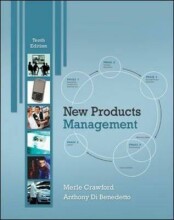Summary: M&a
- This + 400k other summaries
- A unique study and practice tool
- Never study anything twice again
- Get the grades you hope for
- 100% sure, 100% understanding
Read the summary and the most important questions on M&A
-
1 Accounting - Basic
This is a preview. There are 6 more flashcards available for chapter 1
Show more cards here -
How do the 3 statements link together?
“To tie the statements together, Net Income from the Income Statement flows into Shareholders’ Equity on the Balance Sheet, and into the top line of the Cash Flow Statement.
Changes to Balance Sheet items appear as working capital changes on the Cash Flow Statement, and investing and financing activities affect Balance Sheet items such as PP&E, Debt and Shareholders’ Equity. The Cash and Shareholders’ Equity items on the Balance Sheet act as “plugs,” with Cash flowing in from the final line on the Cash Flow Statement.” -
4. If I were stranded on a desert island, only had 1 statement and I wanted to review the overall health of a company – which statement would I use and why?
You would use the Cash Flow Statement because it gives a true picture of how much cash the company is actually generating, independent of all the non-cash expenses you might have. And that’s the #1 thing you care about when analyzing the overall financial health of any business – its cash flow. -
5. Let’s say I could only look at 2 statements to assess a company’s prospects – which 2 would I use and why?
You would pick the Income Statement and Balance Sheet, because you can create the Cash Flow Statement from both of those (assuming, of course that you have “before” and “after” versions of the Balance Sheet that correspond to the same period the Income Statement is tracking). -
7. If Depreciation is a non-cash expense, why does it affect the cash balance?
Although Depreciation is a non-cash expense, it is tax-deductible. Since taxes are a cash expense, Depreciation affects cash by reducing the amount of taxes you pay. -
8. Where does Depreciation usually show up on the Income Statement?
It could be in a separate line item, or it could be embedded in Cost of Goods Sold or Operating Expenses – every company does it differently. Note that the end result for accounting questions is the same: Depreciation always reduces Pre-Tax Income. -
10. What happens when Inventory goes up by $10, assuming you pay for it with cash?
No changes to the Income Statement. On the Cash Flow Statement, Inventory is an asset so that decreases your Cash Flow from Operations – it goes down by $10, as does the Net Change in Cash at the bottom. On the Balance Sheet under Assets, Inventory is up by $10 but Cash is down by $10, so the changes cancel out and Assets still equals Liabilities & Shareholders’ Equity. -
11. Why is the Income Statement not affected by changes in Inventory?
This is a common interview mistake – incorrectly stating that Working Capital changes show up on the Income Statement.
In the case of Inventory, the expense is only recorded when the goods associated with it are sold – so if it’s just sitting in a warehouse, it does not count as a Cost of Good Sold or Operating Expense until the company manufactures it into a product and sells it. -
2 Enterprise/Equity Value Basic
This is a preview. There are 7 more flashcards available for chapter 2
Show more cards here -
1. Why do we look at both Enterprise Value and Equity Value?
Enterprise Value represents the value of the company that is attributable to all investors; Equity Value only represents the portion available to shareholders (equity investors). You look at both because Equity Value is the number the public-at-large sees, while Enterprise Value represents its true value. -
2. When looking at an acquisition of a company, do you pay more attention to Enterprise or Equity Value?
Enterprise Value, because that’s how much an acquirer really “pays” and includes the often mandatory debt repayment. -
3. What’s the formula for Enterprise Value?
- EV = Equity Value + Debt + Preferred Stock + Noncontrolling Interest – Cash
Non controlling interest= minority interest - EV = Equity Value + Debt + Preferred Stock + Noncontrolling Interest – Cash
- Higher grades + faster learning
- Never study anything twice
- 100% sure, 100% understanding






























